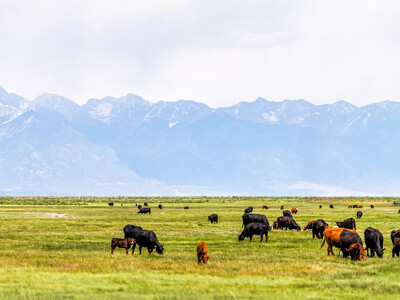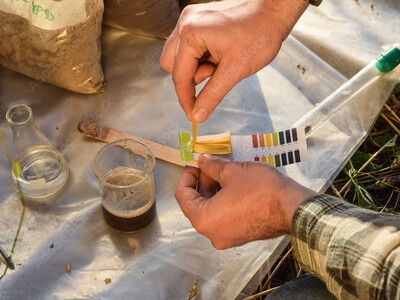agcareers.com
I'm always impressed with the information I find on the website agcareers.com. If you're looking for a job in agriculture you may want to consult their recent suggestions which they call Five Essential Tips for Landing a Job in Agriculture. They are, briefly,1. Cultivate your online reputation carefully. Although not all potential employers will “Google” you, some will, and the last thing you want is for something to surface that reflects poorly on you as a candidate. If you have public-facing social media accounts with posts and/or images (including images that other people have tagged you in), do a thorough assessment to determine if anything unseemly might crop up.
Cultivating a professional online persona isn’t just about what people don’t see. This is also an opportunity to showcase things you want prospective employers to see, such as your enthusiasm for agriculture, volunteer work, and any additional credentials that didn’t make it into your resume (e.g. recommendations from colleagues on LinkedIn, articles you may have written, etc.). Ultimately, your goal is to make sure that what people see online reinforces why you are the ideal candidate.
2. Groom your resume and cover letter. Although this step should be obvious, many people fail to regularly spruce up their resume. If it’s been a while, take the time to go through everything with a fine-toothed comb. Ask a friend or colleague to review your application materials and give you constructive criticism. It’s not just about catching typos. Uninspired writing in a cover letter can make you look boring on paper. If you’re currently in college or a recent grad, seek assistance from your school’s career center and/or writing center. Otherwise, explore other available services that can help you polish your materials, such as a local career development consultant.
3. Conduct informational research and field interviews. Although many people skip this step, it could mean the difference between a successful job interview and a poor one. First, take the time to read about the organization you are applying to, including information about how that organization conducts business and any other available information (e.g. the “about us” page and other PR materials). Reread the job description and write down some questions about how you can best help the organization accomplish its goals. Try to frame your questions in ways that show you’ve done your research.
4. Thoroughly prepare for every interview. Although the previous step will give you an edge, consider doing a mock interview, especially if it’s been a long time since your last job interview. Unless you are naturally very comfortable speaking in public, it’s always a good idea to take a dry run. Mock interviews can help you feel less nervous about answering questions and allow you to practice talking in detail about your qualifications.
5. Never stop growing. Whether you’re currently on the job hunt or comfortable in your career, it’s essential to never stop seeking education and professional development opportunities. Not only can enhancing your knowledge and skills help you land a better job, it can also help you advance within your current or future career.
Bonnie Johnson: “We are not a recruiter so we do not do any direct placement of individuals. What happens is a lot of companies post their jobs on our site. We are kind of like a monster.com or a career builder but specific to agriculture. Agricultural companies post their jobs on our site and then job seekers can go in and they can search by keyword, by location or a lot of different things. They can apply directly to the site and their application goes directly to the company that is doing the hiring. Then the company contacts the job seeker.

















